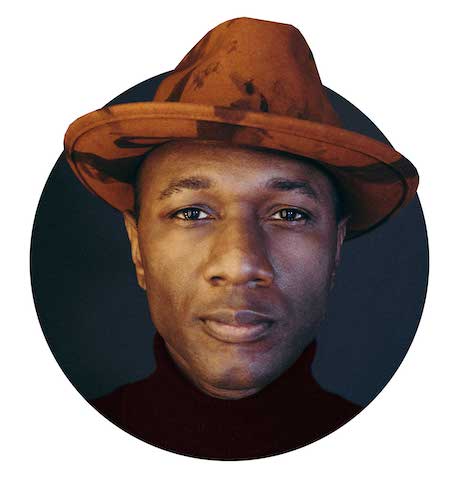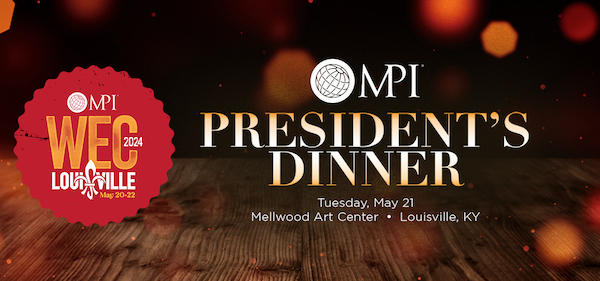Aloe Blacc believes strongly in the power of in-person events.
“Spending time in person is so much better than just doing it digitally and over a virtual meeting,” says the Grammy-nominated singer and songwriter known for global hits such as “I Need A Dollar,” “The Man” and the diamond-certified “Wake Me Up,” which boasts over 2 billion streams. “It’s the natural way for humans to convene. You get to see the smile on their faces, hear the joy in their voices, and it’s so much more creative. Collaboration happens when you’re face to face in person and in real life, not to mention there are a lot of health benefits to being around other people. The endorphins and the oxytocin that rush through your body when you are having a positive experience with someone else are really important for your health.”
Blacc, who has consistently used his platform for positive social transformation—he describes his music as “A.I.M.” (affirmation, inspiration and motivation)—will be the special musical guest at MPI’s President’s Dinner, honoring the outstanding contributions of volunteer chapter leaders and volunteers, alongside industry legend Steve O’Malley (who will receive MPI’s Industry Leader Award) during next month’s World Education Congress (WEC) in Louisville. (The prestigious event is made possible by founding sponsor Hilton and destination sponsor Louisville Tourism.)
In advance of Blacc’s President’s Dinner performance, we caught up with him to discuss the importance of event icebreakers, his focus on mental health and contributing to non-profit causes through his music.

As a longtime live performer, you understand events better than most people. From your perspective, is there something that works particularly well for connecting people through events? Or is there something we could be doing better?
I found that what works really well for connecting people through events is having a great icebreaker. One that really brings people closer together, tears away the mask or the veil and gives people an opportunity to be vulnerable and free. I’ve been to a lot of events over the years, and one recent event had the most amazing icebreaker that really gave every single participant an opportunity to become friends before the conference started and before they put their guards up.
I also think that music is absolutely an important element to a conference. Many conferences are highly intellectual. There’s so much information being delivered that it could be overwhelming, and music helps to give people a chance to relax, let their hair down and just enjoy a vibe.
Whenever I perform at a conference, I am always engaging the audience. I love to sing songs that require call and response. I love to get the audience engaged in dancing, singing and clapping along to the rhythm so that they’re in their bodies and in their hearts as much as they have been in their brains and in their minds for the whole conference.
“I found that what works really well for connecting people through events is having a great icebreaker.”
A big focus for MPI and the meeting industry is wellness, and specifically mental health. I know that’s also important to you, as shown by the “Songs for Hope” performance at the Kennedy Center. What message do you have for focusing on mental health during a divisive time that’s difficult for many people?
My message for focusing on mental health during this time is to have a group of friends and family that you can communicate with often and with great depth. I think it’s really important to have a community around you that understands who you are and what you’re going through and who will be there when you’re not feeling so good. In addition, I think it’s really important to have personal practices that help to promote joy and our pro-social behaviors. They could be really silly things like a guilty pleasure movie or something childish and playful that makes you feel good even if it seems a little bit immature. As adults, we tend to be restrictive in the types of activities we’re allowed to engage in to experience joy, and I like to say that music is the last playground for adults. Sometimes you just turn on a song that reminds you of your younger, happier self and that’s a great way to find joy.

I read a Forbes article about your drive to fight viral infections and the connection with the COVID-19 pandemic. Can you tell us a bit about the “sonic legacies” you’re creating for nonprofit organizations?
When I was really young, I heard “We Are the World,” and I loved the song. As I got older, I really had a chance to understand what the song meant. My mentor, the late great Harry Belafonte, explained to me the power of the voice of the artist to speak truth to power. And from his instruction, I have decided to create an album of songs inspired by the mission and the work of nonprofit organizations in order to amplify their cause in much the same way that “We Are the World” amplified starvation in Africa.
I have already written and recorded most of the songs for this album called “Stand Together,” but I imagine this is just volume one of many more albums to come because there are so many worthy non-profit organizations who deserve to be highlighted with a sonic legacy.
Click here for tickets and more information about the President’s Dinner at WEC.

